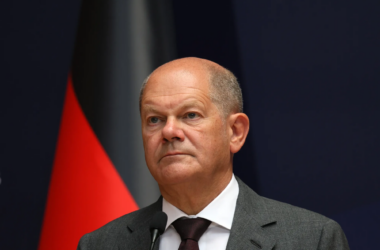Germany’s probable next chancellor wasted no time after the election before making it clear—those hoping for a shift in migration policy should brace for more of the same.
Friedrich Merz, leader of the center-right Christian Democratic Union (CDU), dismissed any notion of closing borders to curb illegal migration, stating on Monday that such measures were not on the table.
Yet, election results paint a different picture of public sentiment. Many Germans resonate with the right-wing Alternative für Deutschland (AfD)’s tougher stance on immigration, believing the party better addresses growing security concerns. The AfD’s strong second-place finish, securing over 20% of the vote and trailing the CDU by only eight points, underscores public frustration with establishment policies on border control. Still, this dissatisfaction seems unlikely to influence national policy.
Merz’s comments sparked backlash online, with critics accusing him of backpedaling on campaign promises. Many pointed to his previous assurances that permanent border controls would be implemented immediately, preventing illegal crossings from day one.
Anticipating the pushback, Merz claimed that certain statements made during the campaign had been exaggerated by the media. If so, he had no issue letting those misinterpretations persist right up until election day. Rather than correcting the record earlier, he allowed the perception of a firm conservative stance to linger until votes were cast.
This tactic is hardly new. A similar playbook was used in the UK, where the Conservative Party spent 14 years in power acting in name only before Labour took over—though the latter, too, merely masquerades as a champion of the working class. Across Europe, the trend continues.
At last, the CDU has revealed its hand—albeit too late—exposing not only its true stance on migration but also its reluctance to heed democratic pressure.




